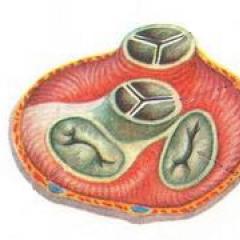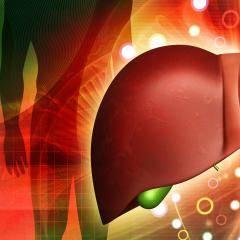Transfiguration Psychiatric Hospital. Preobrazhenskaya psychiatric hospital Matrosskaya Tishina 20 psychiatric hospital
DEAR Muscovites -residentsdistricts attached to the Psychoneurological dispensaries - branches of GBUZ "PKB No. 4 DZM" V. A. Gilyarovsky "!
For the convenience of receivingmedical services provided only on a paid basis **, You can contact any of the branches, regardless of the address of registration at the place of residence.
Addresses and telephones of the branches of GBUZ "PKB No. 4 DZM" V. A. Gilyarovsky ":
If it is more convenient for you to contact a branch other than yours, we recommend that you make an appointment in advance by calling the registry of the branch you need at the above phone number. The implementation of this recommendation will allow you to reduce the time of an appointment with a psychiatrist *** and the provision of medical services to you.
ADMINISTRATION Branch of GBUZ "PKB No. 4 DZM" V. A. Gilyarovsky "
** - reception (examination, consultation) of a psychiatrist, primary on the personal initiative of citizens to exclude acute and chronic mental disorders;
Examination (psychiatric) by a psychiatrist during preliminary and periodic medical examinations of citizens in the conditions of a branch (including state civil servants of the Russian Federation and municipal employees to exclude diseases that prevent admission to the state civil service of the Russian Federation or its passage);
Examination (psychiatric) by a psychiatrist about the absence of contraindications for work using information constituting a state secret;
Examination by a psychiatrist for the presence of medical contraindications to management vehicle;
Examination by a psychiatrist for the presence of medical contraindications to the possession of a weapon;
Appointment (examination, consultation) of a psychiatrist, primary
*** It is necessary for preliminary receipt of medical information about you at the branch to which the address of registration at the place of residence belongs in the manner prescribed by clause 8 of part 4 of article 13 of the Federal law of November 21, 2011 No. 323-FZ "On the basics of protecting the health of citizens v Russian Federation»
Schedule for the provision of paid services
Branch (PND 9), 8th St. Sokolinaya Gora, 28
Department for the provision of paid services
Electroencephalography room
At the time of the Preobrazhensky shipbuilding, here, on the right bank of the Yauza, there was Matrosskaya Sloboda (hence the names of Matrosskaya Tishina Street and Matrossky Bridge). Peter built a hospital for sailors near the linen factory. And in 1805-1808, the Preobrazhensky "dollargauz" or "House of the mind of the deprived" was being built here. The date "1808" is still stamped on the facade. It was the first specialized psychiatric hospital in Moscow and one of the first in Russia. The funds for the construction were found by Emperor Alexander I: he donated for this the money collected by the Moscow nobility for his coronation celebrations. The author of the project was the provincial architect Ivan Selekhov, assistant to M.F. Kazakov.
The classical hospital building is built in the manor traditions: the main house with a pediment and a pilaster portico in the center; wings connect it to the side wings. Initially, the building was designed for 80 patients, each of whom had a separate ward. Large halls were located in the center of both floors. The cast-iron balustrades of the stairs have survived to this day. On the vast territory of the hospital there are several more buildings of the 19th century, standing among the old park. An interesting wooden wing overlooking Matrosskaya Tishina - there are very few of them left in Moscow.
Several outstanding Russian psychiatrists worked at the Preobrazhenskaya hospital - V.F. Sabler, N.N. Bazhenov, A.S. Kronfeld, V.A. Gilyarovsky (she bears his name today, not to be confused with the famous journalist!). But their fame is far inferior to the glory of one of the patients - the holy fool, seer and predictor Ivan Yakovlevich Koreysha (1783-1861). He lived here for over forty years. Koreysha was described by Leskov, Ostrovsky, Dostoevsky. Crowds of people wishing to know their future, mostly women, gathered at the walls of the dollarhouse and demanded a meeting with Koreisha. It got to the point that tickets were sold for his "sessions" (20 kopecks each), the proceeds ensured the welfare of the entire establishment. As a rule, Koreisha gave incoherent and associative answers to clients' questions, so the interpretation of his predictions required a lot of imagination. Visitors even examined the dried sheets from Koreishi's bed (Ivan Yakovlevich never got out of bed) and took pieces of them home. When Koreish fell seriously ill, they began to let him in for free - to say goodbye. Eight days before his death, the seer asked for soup from eight perch. When he died, a crowd of sobbing women and men carried the coffin in their arms to the cemetery at the Church of Elijah the Prophet in Cherkizovo. At the grave of Koreishi today there are fresh flowers, gingerbread and sweets brought by his admirers.
In the museum of the Preobrazhenskaya hospital, Koreysha's medical card is preserved, in which it is written: “The causes of the disease are frantic studies of religious books. The disease is completely incurable. " Probably, it was with Koreisha that Nikolai Gogol, who was experiencing a serious spiritual crisis, wanted to see a few days before his death. There is a story about how on Shrovetide in 1852 he took a cab and ordered him to be taken across Moscow to the Preobrazhenskaya hospital. Arriving at the gate, Gogol, however, did not dare to go inside, walked back and forth, then walked away from the gate, stood for a long time in the snow, in the field, in the wind, thinking about something ... Finally, he got into the sleigh and ordered to go back to Nikitsky Boulevard ...
1 2 3 4 5 5 (Excellent)
№ 8 19.02.2018 21:34
Twice a year, my daughter had to be hospitalized in the Central Clinical Hospital 3 in the 9th department under the leadership of the head of the department Lindarenko Ivan Viktorovich. A wonderful doctor, a highly qualified specialist, an attentive person for a month of treatment did what they could not do in a private clinic in 8 months: he returned my daughter's former condition, joy of life, hope for a full recovery. Our family thanks the brilliant psychiatrist Lindarenko Ivan Viktorovich, who not only treats patients, but also returns their relatives' faith in modern medicine, in the disinterested attitude of the doctor, who is guided in his work by the interests of the patient. In his department there is a strict order. The medical staff patiently and attentively treats both the sick and their relatives. They did not "skip away" to private clinics from difficulties and problems, but calmly and courageously work for the benefit of the patient. Motherly thanks and a deep bow to you, people in white coats!
Just the mother of Kozlov-Kiselev
1 2 3 4 5 5 (Excellent)
№ 7 17.04.2017 14:00
There was no time to write a review right away, but my opinion has not changed over time. Getting to a psychiatric hospital is already bad and scary, but what to do if necessary ... They helped us! Many thanks to the head of the department Lindarenko Viktor Ivanovich! Strict, but to the point, patiently and politely will listen and explain everything. I also liked the fact that he carefully dealt with our particular case, not superficially, as is often the case with other doctors. Ivan Viktorovich, we wish you professional growth and recovering patients. Thank you and your staff!
Alla Viktorovna
1 2 3 4 5 5 (Excellent)
№ 6 24.10.2016 11:54
Our mother was in department 9. I would like to express my gratitude to the head of this department Ivan Viktorovich Lindarenko, the attending physician Alexei Mikhailovich Frolov, and also to the nurse Inna Borisovna. In addition to their competence in treating patients, they were very friendly and sympathetic not only towards our mother, but also towards us - her loved ones.
Thank you so much and bow to you!
Maslova Margarita
1 2 3 4 5 5 (Excellent)
№ 5 12.10.2015 20:47
My son came from St. Petersburg to Moscow in September and ended up in the hospital without documents and things. Lay in the first compartment. They provided him with everything he needed, conducted an examination, and took tests. Lay for three weeks in excellent conditions: comfortable modern beds, library, TV, refrigerator, excellent ventilation, spacious. They were fed five times a day. And all this is absolutely free! Doctor Moskaleva Oksana Viktorovna selected the right treatment. We talked with her on the phone, and every time she patiently and in detail answered all my questions. Thanks a lot to her! I also thank the staff of the department for their sensitive and correct attitude. I spoke with some relatives of other patients on the day of the visit. There were no disaffected among them.
Elena Viacheslavovna
1 2 3 4 5 4 (Good)
№ 4 13.04.2015 20:51
Our mother was admitted to the hospital two months ago to Leonora Vladimirovna Gaskina, at the 11th department. I am very grateful to the head of this department and all the medical and service personnel. The help is qualified and the attitude towards mother Kokoreva A.I. is very good! I come to my mother every 2 days and I always see cleanliness, order, gentle attitude towards patients and polite treatment of the staff to patients ... they call them affectionately "our girls." We are very grateful to my sister Leonora Vladimirovna for our human understanding in a difficult situation for us! Many thanks to her !!!
1 2 3 4 5 1 (Very bad)
№ 3 10.01.2015 22:35
It so happened that we put our grandmother there, she was 91, in the 7th PAID department, the head of which is Gaskina Leonora Vladimirovna! when they brought her there, grandmother could eat herself, move with help, she had to be supported, but she walked more or less. The first month of being there went more or less normally, although very often when we came to visit my grandmother (and we came 1-2 times a week), we noticed injections and a semi-vegetable state on her body. since the grandmother was already old, we attributed her condition to pressure (the weather changed only in this way, then plus, then minus). going to the doctor and being interested in the health of her grandmother, Leonara Vladimirovna, constantly said "what do you want, age, etc., if it were not for me, everything could be much worse .... thanks to me ...." and so on, hinting that we gave her money ... and so constantly ... in the second month she told us directly that there were a lot of people who wanted to take our place ... we had to bring her an envelope ... for days it only got worse ... coming to her, we began to notice bruises on her body and legs. more and more often her condition became "vegetable" she could no longer walk on her own, stopped recognizing us, barely ate. I didn’t get out of bed, I couldn’t say anything .... after the last visit, seeing her like that, we decided to urgently take grandmother out of this hell ... told the manager, she asked why ahead of time ... we did not explain the reason .. .. we were told that the grandmother will be prepared for discharge in 3 days !!! 2 days later we received a call from the hospital and said that the grandmother was transferred to intensive care ... the next day she died !!! unfortunately we didn’t have time to pick it up from there! so dear people, please think, if you really love your relatives, I beg you, in no case do not put them in this hospital !!!
At the time of the Preobrazhensky shipbuilding, here, on the right bank of the Yauza, there was Matrosskaya Sloboda (hence the names of Matrosskaya Tishina Street and Matrossky Bridge). Peter built a hospital for sailors near the linen factory. And in 1805-1808, the Preobrazhensky "dollargauz" or "House of the mind of the deprived" was being built here. The date "1808" is still stamped on the facade. It was the first specialized psychiatric hospital in Moscow and one of the first in Russia. The funds for the construction were found by Emperor Alexander I: he donated for this the money collected by the Moscow nobility for his coronation celebrations. The author of the project was the provincial architect Ivan Selekhov, assistant to M.F. Kazakov.
The classical hospital building is built in the manor traditions: the main house with a pediment and a pilaster portico in the center; wings connect it to the side wings. Initially, the building was designed for 80 patients, each of whom had a separate ward. Large halls were located in the center of both floors. The cast-iron balustrades of the stairs have survived to this day. On the vast territory of the hospital there are several more buildings of the 19th century, standing among the old park. An interesting wooden wing overlooking Matrosskaya Tishina - there are very few of them left in Moscow.
Several outstanding Russian psychiatrists worked at the Preobrazhenskaya hospital - V.F. Sabler, N.N. Bazhenov, A.S. Kronfeld, V.A. Gilyarovsky (she bears his name today, not to be confused with the famous journalist!). But their fame is far inferior to the glory of one of the patients - the holy fool, seer and predictor Ivan Yakovlevich Koreysha (1783-1861). He lived here for over forty years. Koreysha was described by Leskov, Ostrovsky, Dostoevsky. Crowds of people wishing to know their future, mostly women, gathered at the walls of the dollarhouse and demanded a meeting with Koreisha. It got to the point that tickets were sold for his "sessions" (20 kopecks each), the proceeds ensured the welfare of the entire establishment. As a rule, Koreisha gave incoherent and associative answers to clients' questions, so the interpretation of his predictions required a lot of imagination. Visitors even examined the dried sheets from Koreishi's bed (Ivan Yakovlevich never got out of bed) and took pieces of them home. When Koreish fell seriously ill, they began to let him in for free - to say goodbye. Eight days before his death, the seer asked for soup from eight perch. When he died, a crowd of sobbing women and men carried the coffin in their arms to the cemetery at the Church of Elijah the Prophet in Cherkizovo. At the grave of Koreishi today there are fresh flowers, gingerbread and sweets brought by his admirers.
In the museum of the Preobrazhenskaya hospital, Koreysha's medical card is preserved, in which it is written: “The causes of the disease are frantic studies of religious books. The disease is completely incurable. " Probably, it was with Koreisha that Nikolai Gogol, who was experiencing a serious spiritual crisis, wanted to see a few days before his death. There is a story about how on Shrovetide in 1852 he took a cab and ordered him to be taken across Moscow to the Preobrazhenskaya hospital. Arriving at the gate, Gogol, however, did not dare to go inside, walked back and forth, then walked away from the gate, stood for a long time in the snow, in the field, in the wind, thinking about something ... Finally, he got into the sleigh and ordered to go back to Nikitsky Boulevard ...



